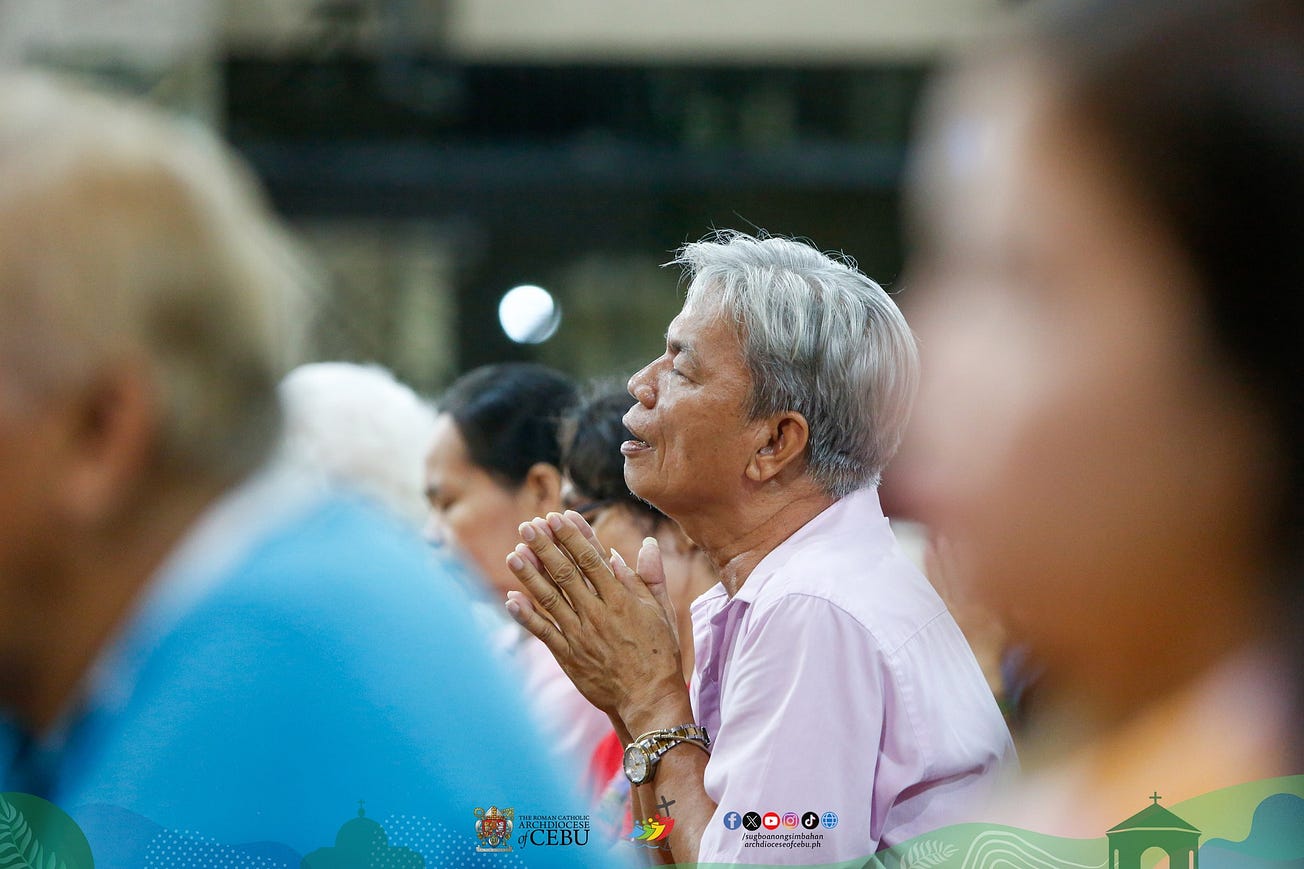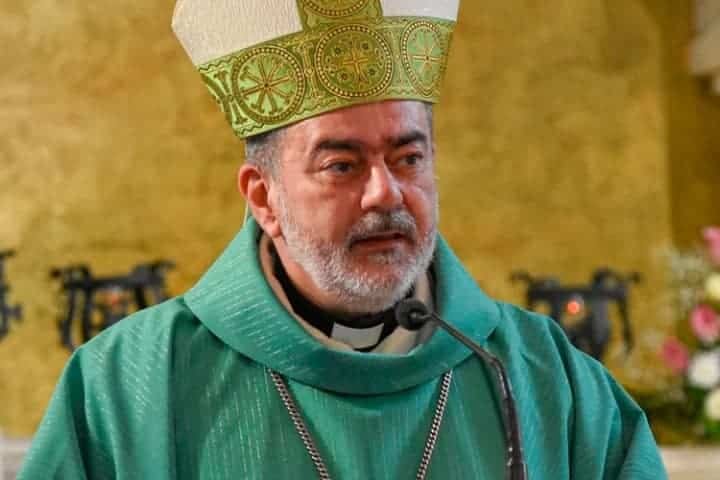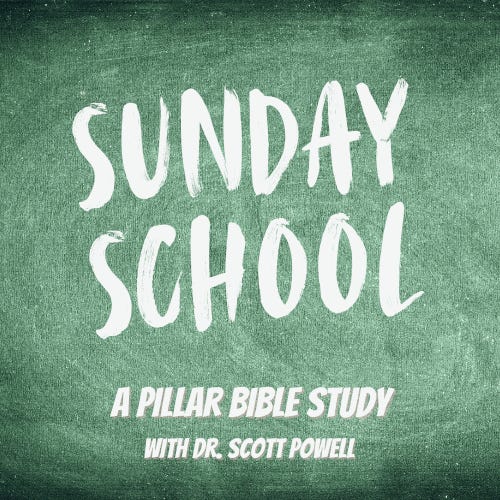As the U.S. bishops’ conference began a day of prayer and closed-door sessions at a Louisville hotel Wednesday, a small group of Catholics held signs outside, urging the bishops to fund the work of the Catholic Campaign for Human Development, an anti-poverty initiative whose future is set to be discussed this week by the bishops.
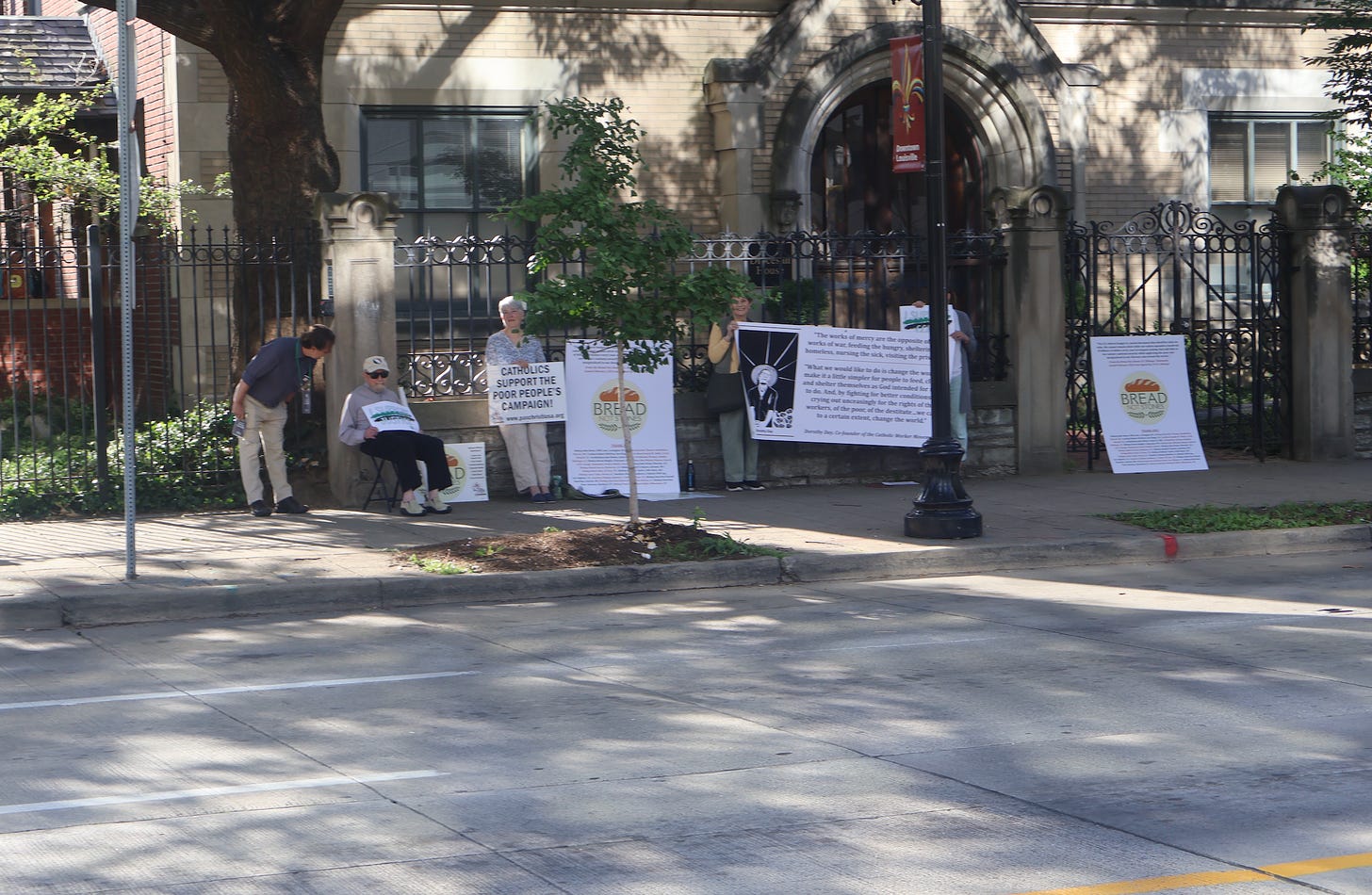
“The main reason why CCHD is important is that they help lift up the voices of people who are most directly impacted by things like poverty — helping to both rise up leadership from among those folks who are directly impacted, from vulnerable and marginalized communities,” explained Johnny Zokovitch, executive director of Pax Christi USA, which organized the demonstration.
“We’ve been really supportive of the campaign over the years, and they’ve been very supportive of a lot of the groups that we’ve worked with,” Zokovitch said.
The demonstrators lined up in front of the Episcopalian Christ Church Cathedral, directly across the street from the bishops’ conference hotel. When they began at 7:30 am June 12, there appeared to be about 10. By the time the bishops began their meetings at 9:00, there were five remaining.
They came as U.S. bishops planned to discuss during the executive session of their spring plenary assembly “ways to renew the mandate and mission of CCHD,” according to a May 13 press release from the U.S. bishops’ conference.
“The bishops will spend time prayerfully discussing the best way to adapt to the post-pandemic needs and resources, while at the same time continuing a steadfast commitment to helping the poor and disenfranchised emerge from the cycle of poverty,” the release explained.
The work of CCHD is to distribute grants that fund community development and economic development initiatives which, “empower low-income people to gain the ability to convene, identify barriers, research issues, brainstorm solutions, and take action to change problematic structures and systems in their communities,” or which help poor and low-income people develop new businesses, create new jobs and develop assets that are owned by families and communities,” according to its website.
Unlike programs focused on directly distributing money or resources to those in need, the CCHD seeks to fund programs which assist or train people who want to make changes in their communities.
In April, The Pillar reported that Ralph McCloud, who led the CCHD for 16 years, had resigned, and that the program faced serious questions regarding its financial management and ongoing viability — and that the program would be up for discussion among the bishops this week.
According to USCCB records, CCHD’s available cash has dwindled in recent years.
After accounting for investment gains and losses and internal fund transfers, the net assets of the CCHD have decreased from $58 million at the end of 2013 to $8 million at the end of 2022.
In 2022 alone, the program saw its net assets decline by more than $8 million — the organization gave out significantly more than it had taken in, while at the same time realizing investment losses.
In fact, CCHD’s expenses have outpaced its revenue — funded mostly from a second collection in parishes across the country — in nearly every year since 2014.
At times, that focus on funding community advocacy organizations rather than direct aid to Catholic apostolates has stirred controversy — especially as some have expressed concerns that groups funded by the CCHD have ties to issues which are contrary to Church teaching on the sacredness of life or on marriage.
Among the larger grants for the 2021-2022 fiscal year listed on the most recent CCHD annual report were $72,000 to the Shine Together Co-Op, a worker-owned cleaning cooperative business. Seventy-five thousand went to New Jersey Together Inc, which advocates on housing and neighborhood issues. And $72,000 went to Chicago Coalition to Save Our Mental Health Centers which advocates for people to support expanded government funding for mental health services.
The U.S. bishops have said that no CCHD funds are distributed to groups with stances contrary to Catholic doctrine, even while one organization, the Lepanto Institute, has said some funded groups violate CCHD’s own guidelines on that front.
For his part, Zokovitch said he thinks that funding non-Catholic organizations is important.
“I think part of that is that it’s the evangelizing part of things. It’s the Church doing the work of Jesus in the world, and that’s certainly done within Church institutions, but also reaching outside the choir, so to speak, to offer Catholic support for things that stand in line with Catholic social teaching — stand in line with Jesus. I think that’s part of the evangelizing mission of the Church, too.”
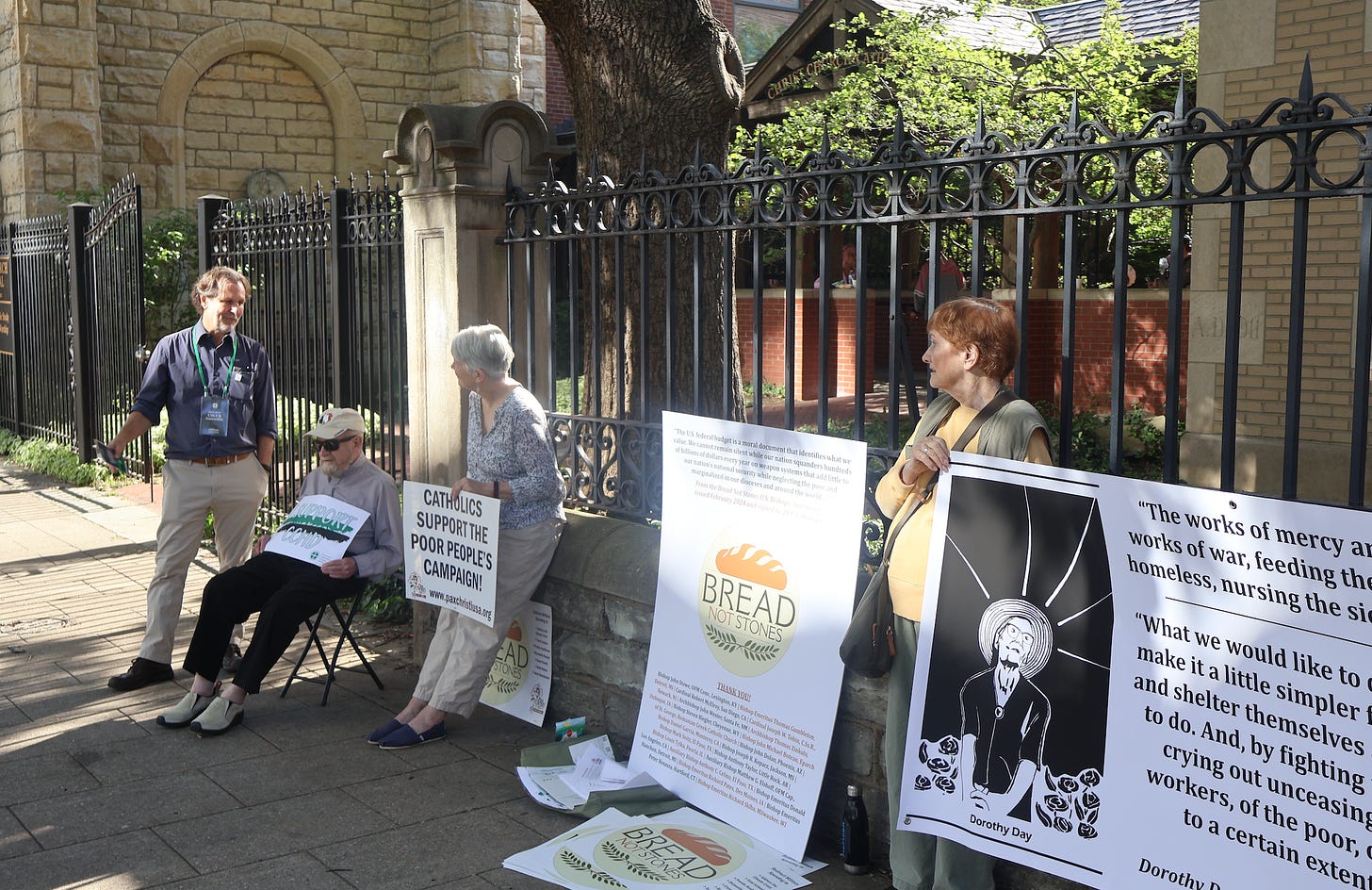
—
Angela Lincoln, a Louisville Catholic, said she came to demonstrate at the bishops’ meeting because “when I heard that the Catholic Campaign for Human Development might be defunded — I see those as important issues, and just wanted to come and support funding those.”
Lincoln told The Pillar while she was “not that familiar” with CCHD-funded projects, but that she wanted to do what she could to support continued CCHD grantmaking from the USCCB.
—
Dotty Lockhart was invited to attend the demonstration by fellow parishioners at St. William’s, her Louisville parish.
“I thought I would come down here and witness,” she said.
“I wasn’t aware of what exactly was on their agenda,” Lockhart said, “but I thought I would come out this morning, ‘cause that’s what I do. I’m a retired teacher, so when people say to show up, I do.”
Lockhart said her concern at the demonstration was the war in Gaza.
“I am actually not sure of what their platform is, but I hope they will take away [from her presence] a strong stand on a cease fire.”
“I have been to Gaza and the West Bank, and people are suffering,” she added.
In March, Archbishop Timothy Broglio, president of the bishops’ conference, issued a statement on that issue.
“To move forward, a cease fire and a permanent cessation of war and violence is absolutely necessary. To move forward, those held hostage must be released and civilians must be protected. To move forward, humanitarian aid must reach those who are in such dire need,” Broglio declared.
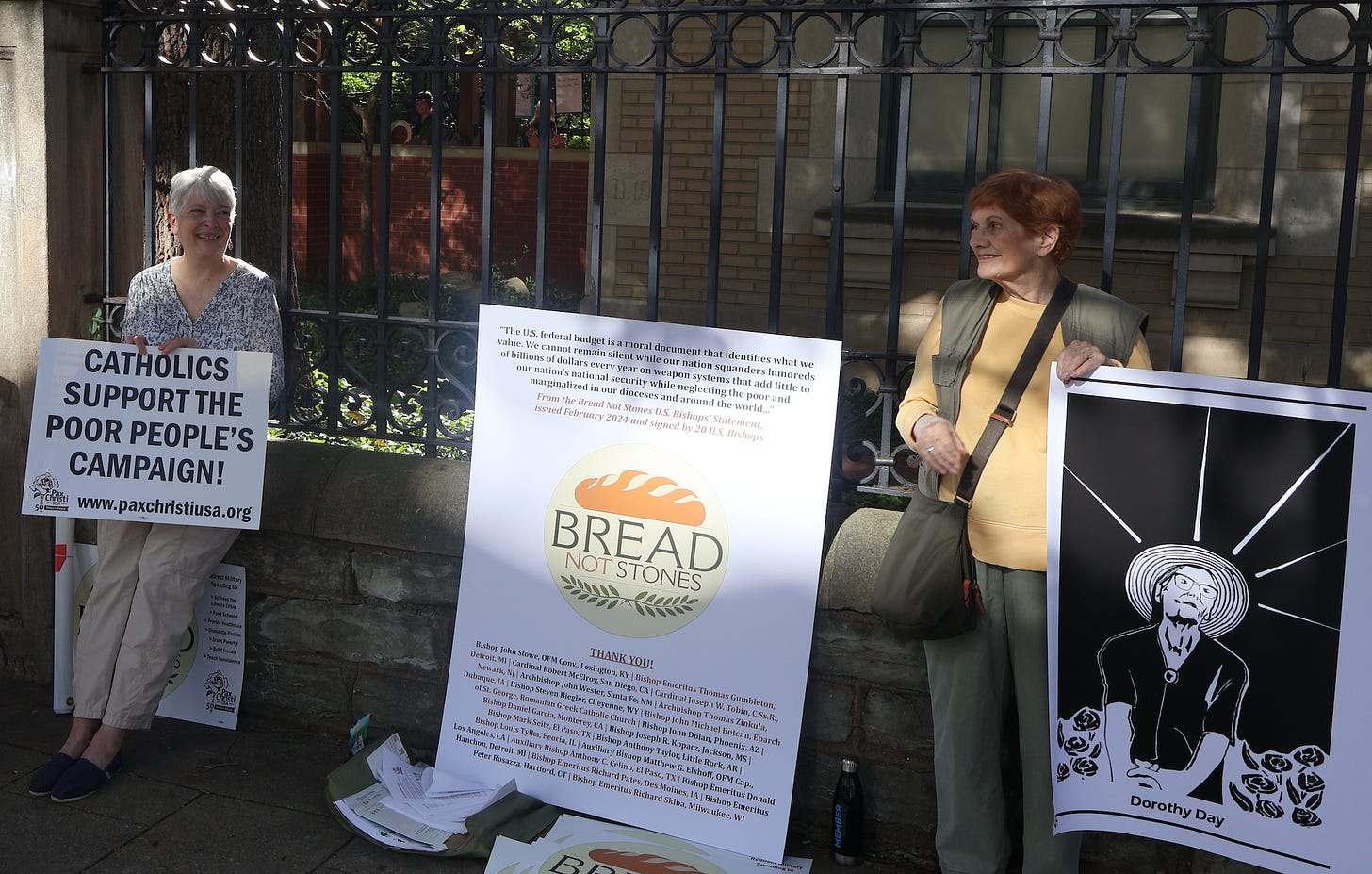
—
CCHD was founded by the U.S. bishops in 1969, as the “National Catholic Crusade Against Poverty.”
The program is funded by an annual second collection, which takes place during Sunday Masses in parishes across the country. To encourage participation in the CCHD collection, dioceses keep 25% of revenue for local anti-poverty programs, while sending 75% to the USCCB for distribution.
“CCHD focuses on the underlying structures that trap people in a cycle of poverty, by empowering those who are living in poverty to change unjust systems, policies, and situations that perpetuate poverty in neighborhoods and communities across the United States,” the program says.
Zokovitch told The Pillar that in addition to its advocacy for CCHD, Pax Christi had organized the Wednesday demonstration to thank the 20 U.S. bishops who signed “Bread not Stones,” a January statement developed by Pax Christi, which called for reduced federal military spending, in favor of support for people living in poverty.
“The U.S. federal budget is a moral document that identifies what we value. We cannot remain silent while our nation squanders hundreds of billions of dollars every year on weapon systems that add little to our nation’s national security while neglecting the poor and marginalized in our dioceses and around the world,” the statement read.

